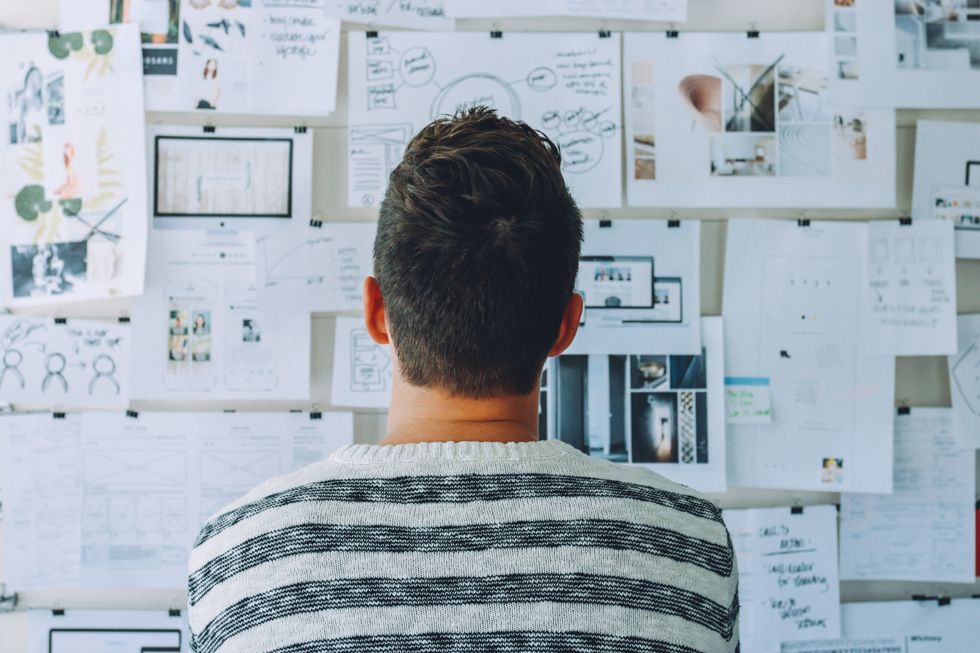Many times in school, as a way of bringing individuals outside of their comfort zones a teacher may say, "There are no bad ideas." And yes, those sentences to me, although knowing that it was all in good intentions, were completely and utterly stupid, but now, I am happy to say that I am a hypocrite.
Seemingly, of course, there are bad ideas and questions, like jumping off a cliff without a parachute to see if you can fly or sticking a fork in an electrical socket to see if you will actually get shocked or if people are just lying to you. We can even and often see these "bad ideas" in the scientific field, such as scientific racism or the belief in superior races due to scientific data, the expanding earth, or the idea that the earth's plates move according to the time and volume in which the earth is expanding, and the notorious "Bigfoot."
All of these, of course… are bad ideas.
Yes, all of these are in the past, and they don't reflect the scientific morals of this time, but if you've learned anything from history, humans will continue to make bad ideas. So let's fast forward to recent years. There have many people getting behind theories that we live on a flat earth, vaccinations cause autism and the most frustrating of all: climate change doesn't exist.
You may be thinking, "Well how can people possibly believe these things," and although I can say many things to answer that question, the most appropriate and articulated answer comes from the creator of the term and philosophy behind pseudoscience itself, Karl Popper: "It's easy to find confirmation of a theory if you're looking for it." If you want a cure for cancer, fast weight loss or the existence of a monster named "Bigfoot," then you will find a way to prove its existence in any way possible. Even if it means proving absolutely nothing in the process.
However, pseudoscience can be useful. I believe that pseudoscience promotes the discovery of natural sciences. Of all of the bad ideas that I have mentioned previously, believers of those things have stopped at nothing to prove the accuracy of their theories. The passion behind it, although frustrating at times, could potentially help prove the next big scientific discovery.
For many years it was thought that the human brain had a finite amount of brain cells and that its max development was fixed. If you happened to develop a mental illness or were in an accident that affected your brain, the damage done to your brain would be irrecoverable. Neuroplasticity, or the ability of the brain to form new connections and pathways and change how its circuits are wired, was considered pseudoscience. In the mid-1900s, there was strong rebuttal against the idea. It was almost the equivalent to flat earth or scientific racism, even though at that time they still believed in the practice of lobotomy.
A major case for neuroplasticity occurred in 2014. A woman perceived to be a late bloomer, as she was a late talker and walker, grew to be a normally functioning person. She started to experience dizziness and confusion in her early adulthood. After being admitted to a hospital, it was found that she was missing her cerebellum, the area of the brain that controls most of the brain's major functions and carries half of the brain's brain cells. She had a condition called "cerebellar agenesis" that was previously only found in nine decreased premature babies.
This not only stunned her doctors but served as key evidence of neuroplasticity and the brain's capability to develop further than its current condition.
Neuroplasticity Practices | 3 Good Things Exercise
More more studies have followed since then proving the existence and capability of neuroplasticity. What once was pseudoscience is now natural science. So, expanding your brain through music or meditation are now acceptable to a majority of the scientific community.
Neuroplasticity is now a key area of study in terms of understanding our brains biology. A previously bad idea is now a good idea.
Although this does not condone or prove the existence of Bigfoot, flat earth or the dangers of vaccinations, it does leave a window open for the possibility of new discovery. So in conclusion, although the phrase "There are no bad ideas" may seem trivial at first maybe there is some truth to it.
And in the words of Karl Popper: "Science must begin with myths, and with the criticism of myths."












